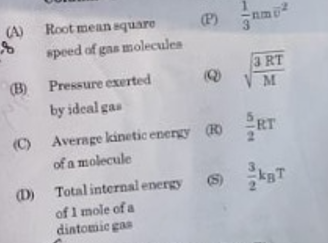Choose the correct match
Mitochondrion - anaerobic respiration
Ribosome - information for protein synthesis
Amyloplast - Storage of Protein
Elaioplast- Storage of Lipid
The correct Answer is:D
To solve the question "Choose the correct match," we will evaluate each option provided and determine which one is correctly matched.
1. Evaluate Option 1: Mitochondria and Anaerobic Respiration
- Mitochondria are known as the powerhouse of the cell and are primarily involved in aerobic respiration, where they produce ATP using oxygen.
- Conclusion: This option is incorrect because mitochondria are not associated with anaerobic respiration.
2. Evaluate Option 2: Ribosome and Information for Protein Synthesis
- Ribosomes are cellular structures that serve as the site for protein synthesis. They do not contain information for protein synthesis; rather, they translate the information encoded in mRNA to synthesize proteins.
- Conclusion: This option is incorrect because ribosomes provide the site for protein synthesis, not the information.
3. Evaluate Option 3: Amyloplast and Storage of Proteins
- Amyloplasts are a type of plastid responsible for the synthesis and storage of starch, not proteins.
- Conclusion: This option is incorrect because amyloplasts do not store proteins.
4. Evaluate Option 4: Elioplast and Storage of Lipids
- Elioplasts are specialized plastids that store lipids (fats). This matches the function of Elioplasts accurately.
- Conclusion: This option is correct because Elioplasts are indeed involved in the storage of lipids.
Final Answer:
The correct match is Option 4: Elioplast and Storage of Lipids.
---
- Mitochondria are known as the powerhouse of the cell and are primarily involved in aerobic respiration, where they produce ATP using oxygen.
- Conclusion: This option is incorrect because mitochondria are not associated with anaerobic respiration.
- Ribosomes are cellular structures that serve as the site for protein synthesis. They do not contain information for protein synthesis; rather, they translate the information encoded in mRNA to synthesize proteins.
- Conclusion: This option is incorrect because ribosomes provide the site for protein synthesis, not the information.
- Amyloplasts are a type of plastid responsible for the synthesis and storage of starch, not proteins.
- Conclusion: This option is incorrect because amyloplasts do not store proteins.
- Elioplasts are specialized plastids that store lipids (fats). This matches the function of Elioplasts accurately.
- Conclusion: This option is correct because Elioplasts are indeed involved in the storage of lipids.
The correct match is Option 4: Elioplast and Storage of Lipids.
Similar Questions
Knowledge Check
- Question 1 - Select One
Match the following list of animals with their level of organisation.
Division of LabourAnimalA.Organ leveli.PheretimaB.Cellular aggregate levelii.FasciolaC.Tissue leveliii.SpongillaD.Organ system leveliv.Obelia
Choose the correct match showing division of labour with animal example.A(i)-B, (ii)-C, (iii)-D and (iv)-AB(i)-B, (ii)-D, (iii)-C and (iv)-AC(i)-D, (ii)-A, (iii)-B and (iv)-CD(i)-A, (ii)-D, (iii)-C and (iv)-B - Question 2 - Select One
Match the animals given in column A with their location in column B.
Column AColumn B(i)DodoA.Africa(ii)QuaggaB.Russia(iii)ThylacineC.Mauritius(iv)Stellar's sea cowD.Australia
Choose the correct match from the following.Ai-a, ii-c, iii-b, iv-dBi-d, ii-c, iii-a, iv-bCi-c, ii-a, iii-b, iv-dDi-c, ii-a, iii-d, iv-b - Question 3 - Select One
Match the following and choose the correct answer :
 AA = 3, B = 4, C = 1, D = 2BA = 2, B = 1, C = 4, D = 3CA = 4, B = 1, C = 2, D = 3DA = 2, B = 4, C = 1, D = 3
AA = 3, B = 4, C = 1, D = 2BA = 2, B = 1, C = 4, D = 3CA = 4, B = 1, C = 2, D = 3DA = 2, B = 4, C = 1, D = 3
Match the columns and choose the correct combination
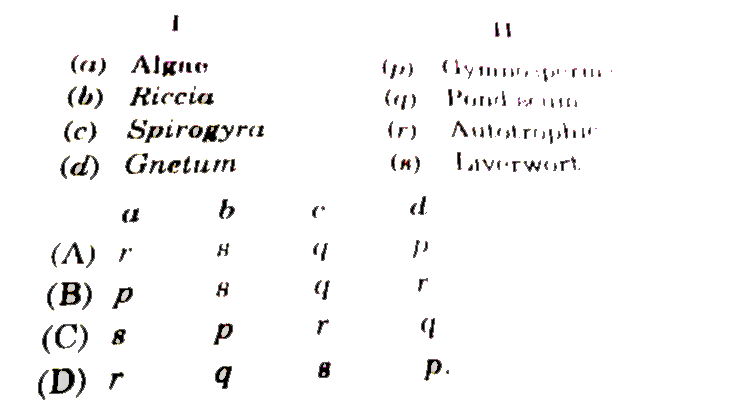 View Solution
View SolutionMatch the columns and choose the correct combination
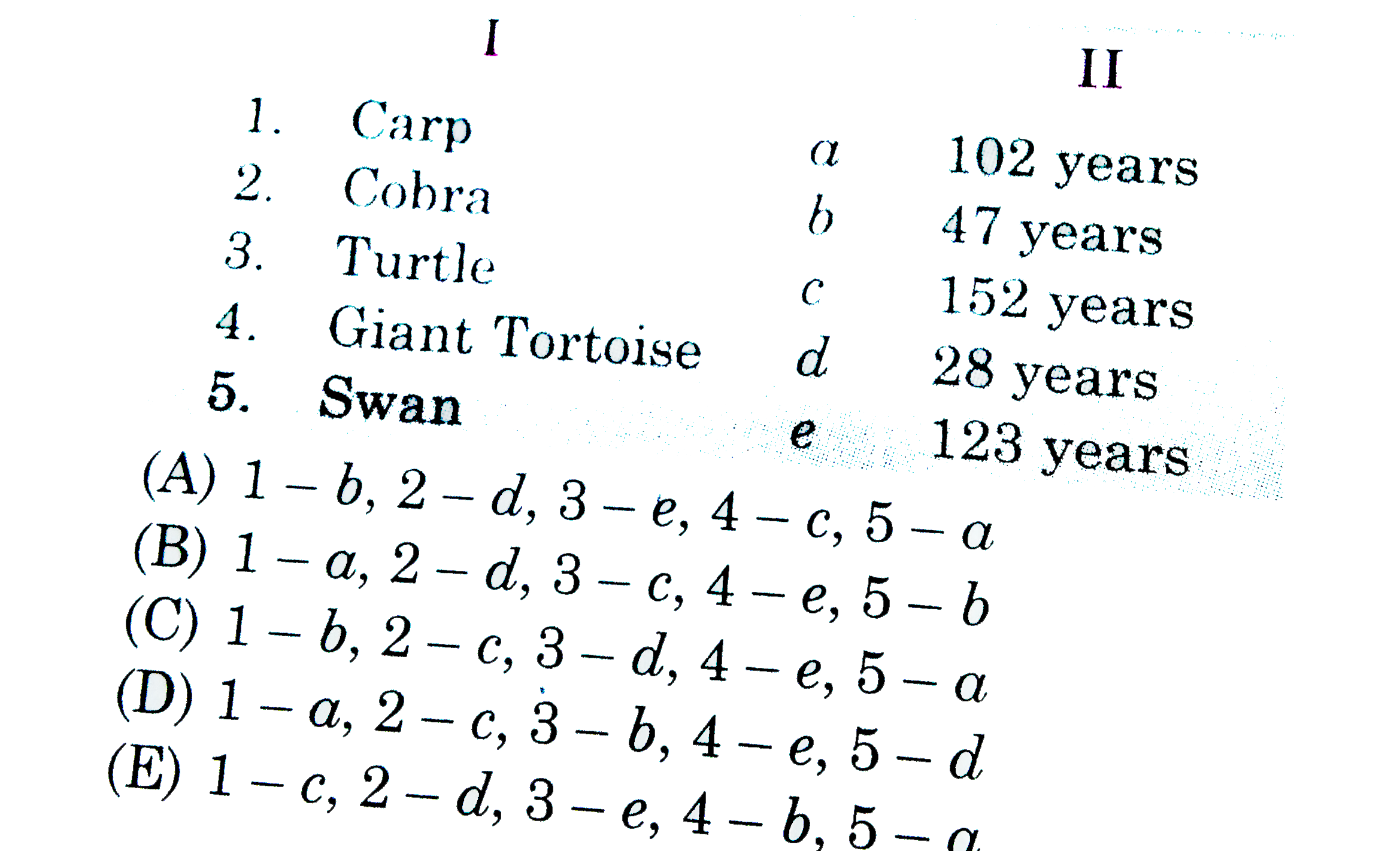 View Solution
View SolutionMatch the columns and choose the correct combination
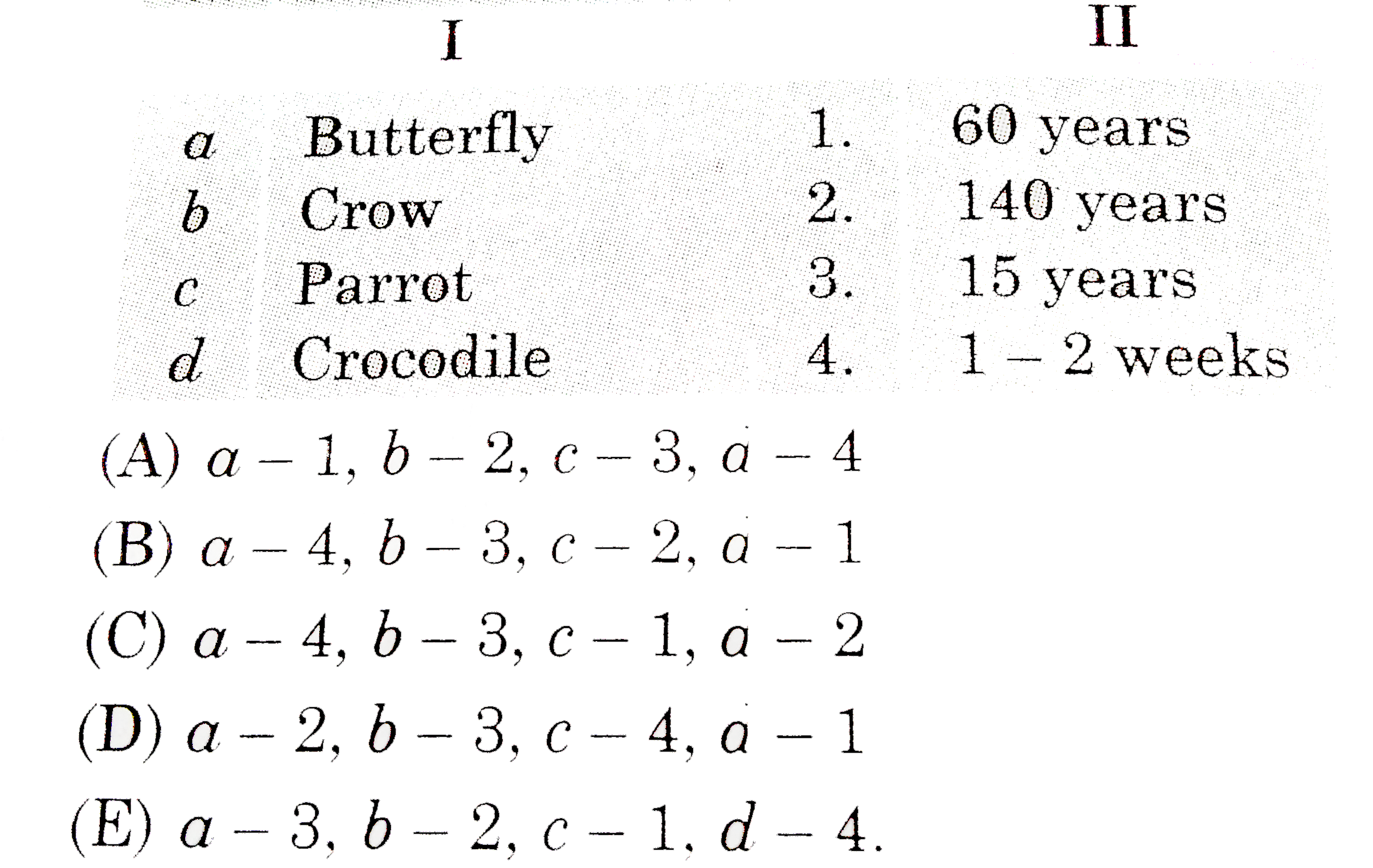 View Solution
View SolutionMatch the columns and choose the correct combination
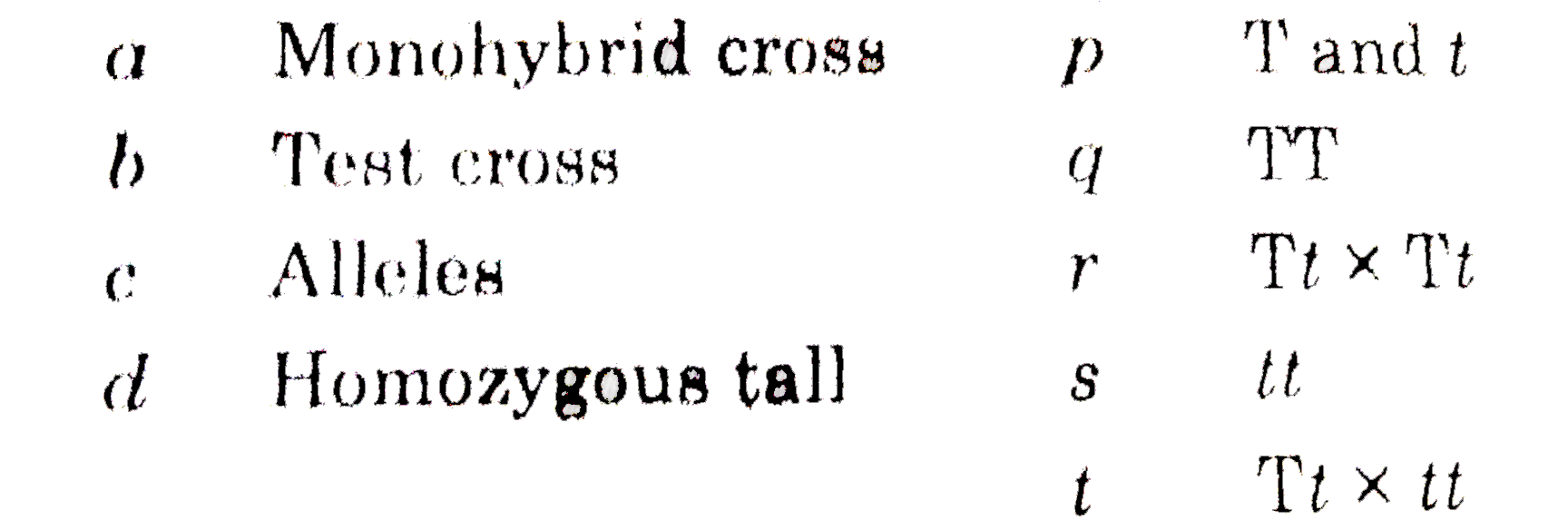 View Solution
View SolutionMatch the columns and choose the correct combination
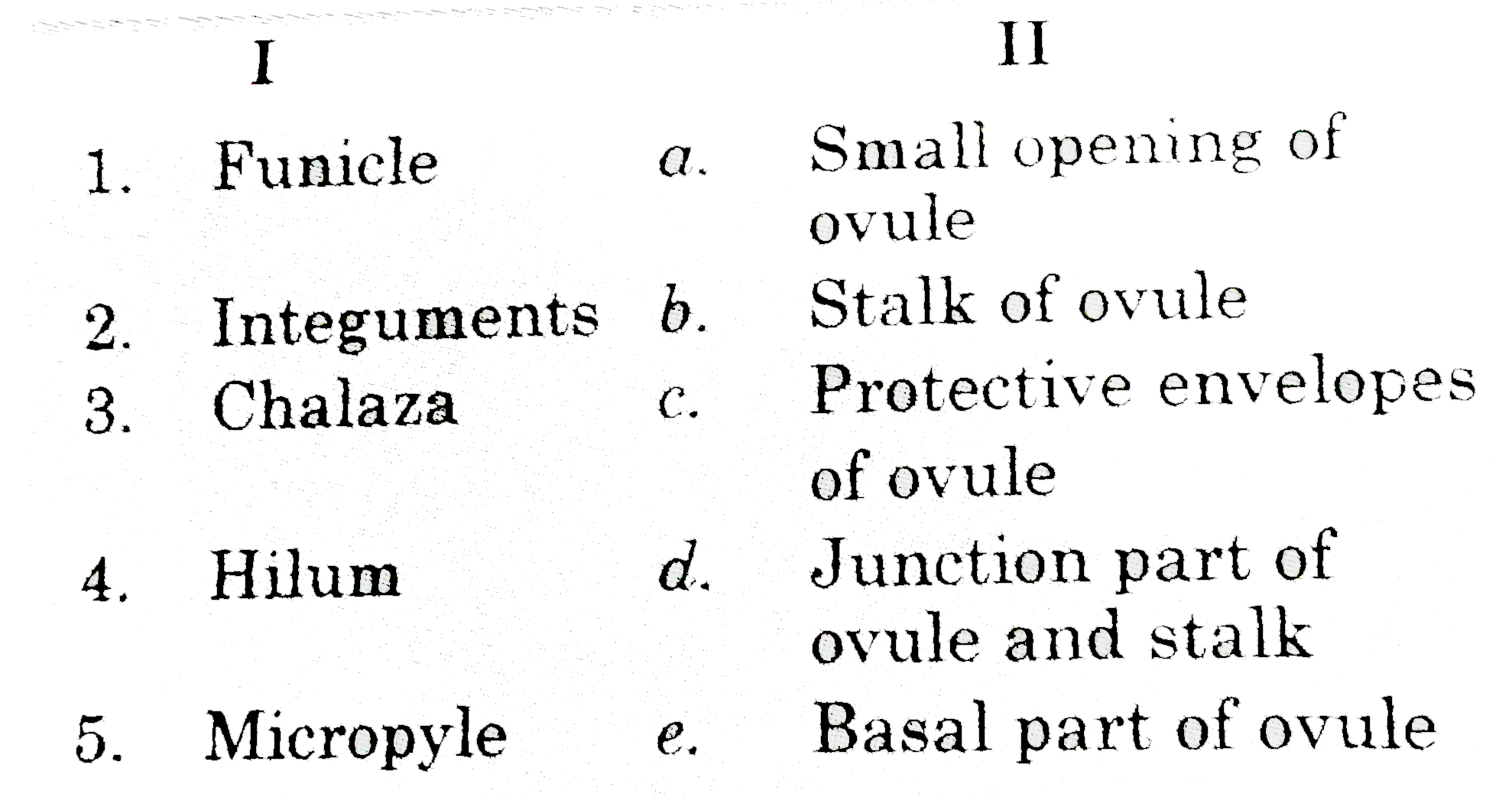 .View Solution
.View Solution


